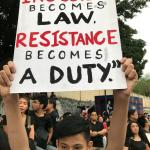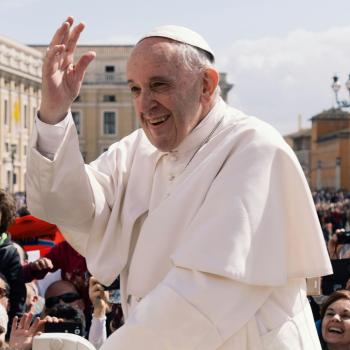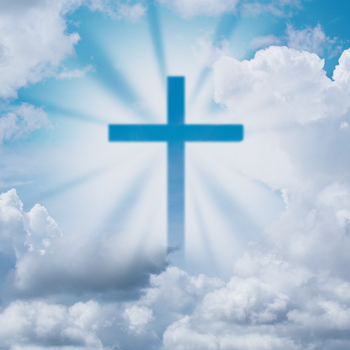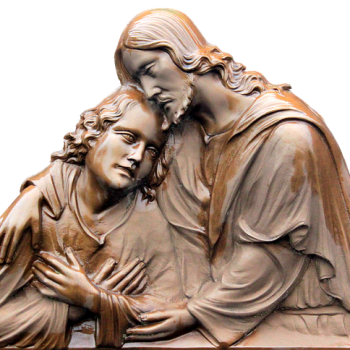On January 11, Crisis magazine published an opinion piece by its editor-in-chief, Eric Sammons, that questioned the value of voting in the 2024 presidential election. He asked: “What’s the Point?” I’d like to answer that question.
Sammons gave three reasons for writing off this election cycle as ridiculous. Here’s my summary:
1) “The primaries are foregone conclusions.” They might, indeed, turn out as predicted, but this is American politics, and the course of any campaign can turn on a dime (for example, Muskie cried and Dean shouted and both lost their followers; Biden seemed to have little chance in 2020, but look what happened).
I’ve been involved in politics since I was a child, so I know of what I speak. Especially in the current volatile environment, there could be a lot of topsy-turvy drama yet to come.
2) It’s possible that neither frontrunner will “actually be on the ballot come November.” The courts, the threat of impeachment, and the potential for one or both of these elderly gents to drop dead make their absence on the ballot a possibility.
3) There are forces capable of arranging a “fix” that will prevent Trump from winning even if he gets the votes to win. In (conspiracy) theory, but there is also a lot of evidence that Trump is unbeatable, so if you want that to be true, vote!
Yes, this election cycle is ridiculous, but in my opinion, that’s because, out of over 334 million people, Americans can’t seem to find at least two people who are not under Congressional investigation and not over 75 to run for president!
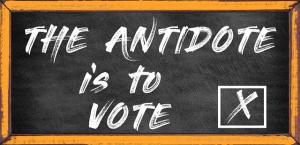
It is also ridiculous that the two frontrunners are both extremists and thus do not represent the positions of the American people.
On one thing, Sammon and I agree: the press has way too much influence. The media does not just report about the election, it purposely directs the course of information about the campaign to get people to vote the way the media thinks they should.
Every Vote Matters
Which is precisely why it is so important that every American citizen votes: We, the people, should choose our elected officials, not the media.
Sammons trots out the overused cynicism that “even in a fair election, your vote almost definitely doesn’t actually count, at least not in a presidential race.” However, simply googling “Does one vote matter?” will result in dozens of articles that prove one vote can be critical.
Admittedly, most of the examples are for more minor elections, but each vote is of great importance for presidential elections too. Consider that George W. Bush won in 2000 with only one more electoral vote than the minimum needed to win, and that vote came from Florida, which he won by just 537 votes!
What if 538 people in Florida in 2000 had listened to advice like that of Sammons? Bush would have lost his tiny margin of victory and Gore would have been president. Out of the almost six million votes cast that year, 537 represents only 0.009%, but it swayed the results, one vote for Bush adding to another. It didn’t take much.
In 2016, the race between Clinton and Trump was decided by a relatively small margin in 3 key states: Wisconsin (27,257 votes), Michigan (11,837 votes), and Pennsylvania (68,236 votes), or a total of just 107,000 votes out of nearly 129 million or 0.00083%.
The readership of Crisis magazine is large enough that, if Sammons’ bad advice were followed by all, they could change the course of the election. All those voters who are of the same ilk as Sammons would not have their voices heard and would deprive themselves of their desired results.
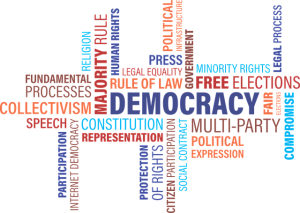
Preserving Democracy
We cannot have a government “of the people, by the people, and for the people” if the people are not involved. Our democracy depends upon citizen participation. Without it, democracy collapses. Sammons thinks that would be okay though. He suggests letting democracy “die, while working to build a new and better system.”
First of all, it’s hard to imagine a better form of government than a democracy where each person gets a vote and where all are treated equally under the law. Monarchies, dictatorships, theocracies, and many other forms have been tried, but none is as compatible to the social justice teaching of the Catholic Church as democracy.
Second, I’m all for a better system of electing officials, and to me that means a multi-party system like most other democracies. The most damaging element in politics today is the polarization of our two major parties. We need more voices, more ideas, and definitely more compromise.
Voting Third Party
For those who repeatedly say, “A vote for a third-party candidate is a vote wasted,” I offer to them, and to Sammons, the words of Peter Sonski, the American Solidarity Party’s Catholic presidential candidate (https://www.petersonski.com/; https://www.solidarity-party.org/): “The only truly wasted vote is one that isn’t cast at all.”
Sonski adds: “My feeling is that if you’re voting for the lesser of two evils, you’re still voting for something that is evil and something that doesn’t represent your values.” Therefore, to be able to vote your conscience, you have to have more choices; not just a third party choice, but a fourth, fifth, or more.
If Sammons is willing to work on a new and better system, then perhaps he should join efforts to effect proportional representation (https://en.wikipedia.org/wiki/Proportional_representation) or work to bolster one of the minor parties into prominence. While doing that, he should also vote.
Catholic Voting
Sammons admits that the Catechism teaches that “Catholics are morally obligated to vote” but then tries to wiggle out of that obligation by saying that it is not a moral absolute, especially if voting means participating in a corrupt and no longer legitimate system. However, the fact that we still hold elections, and no one is ordering us to vote for only one candidate, lends at least some legitimacy to our system, so we need to keep trying.

Sammons even says that our instruction to contribute to the good of society means he is “more obligated to contribute to the good of my local community, or even my state, than I am to the needs of those living thousands of miles away from me.”
Such parochialism is dangerous. It leads to “us” vs. “them” thinking – rich vs. poor, North vs. South, urban vs. rural. “We don’t care about those people over there; we’ll just do our own thing.” The Church teaches, however, that you are your brother’s keeper even if your brother is thousands of miles away.
Sammons asks: “Might a Catholic believe that the best way to contribute to the good of society is to work for a radical (yet peaceful) reconstruction of the political system, in a way that includes not participating in the voting process?” The answer to the first part is “Yes!” but the answer to the second part is “No!”
It is inconsistent to work on a new political system but not participate in the old one while it is still in effect. The commitment to better governance must carry through from old to new or you risk chaotic upheaval instead of a peaceful transition.
So, to Sammons and all others in doubt about voting, I say: “Vote and encourage others to vote in a way that does make a difference – a write-in or minor-party candidate vote sends a message that you want the system to change and that it can be changed.
Use this election cycle to campaign for alternatives in candidates and methods. Join an minor party and start a proportional representation movement in your state. Do not sit back in disgust but charge into the fray and make your voice heard. Perform your duty, as the Catechism teaches, “in the spirit of truth, justice, solidarity, and freedom,” with love and gratitude in service to our country.



